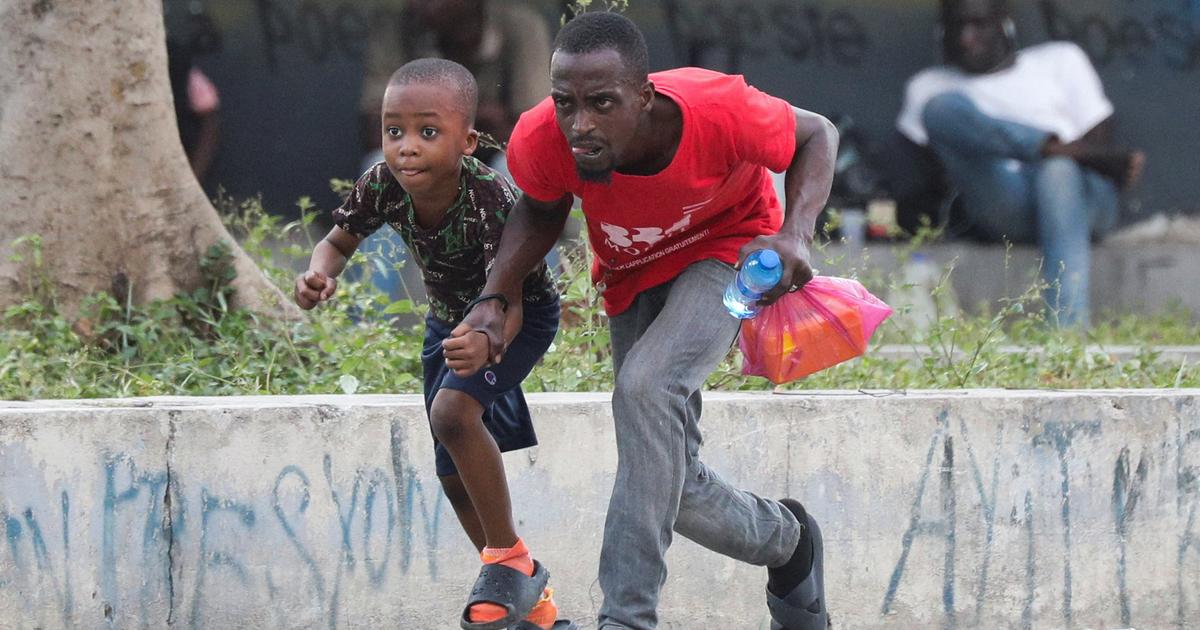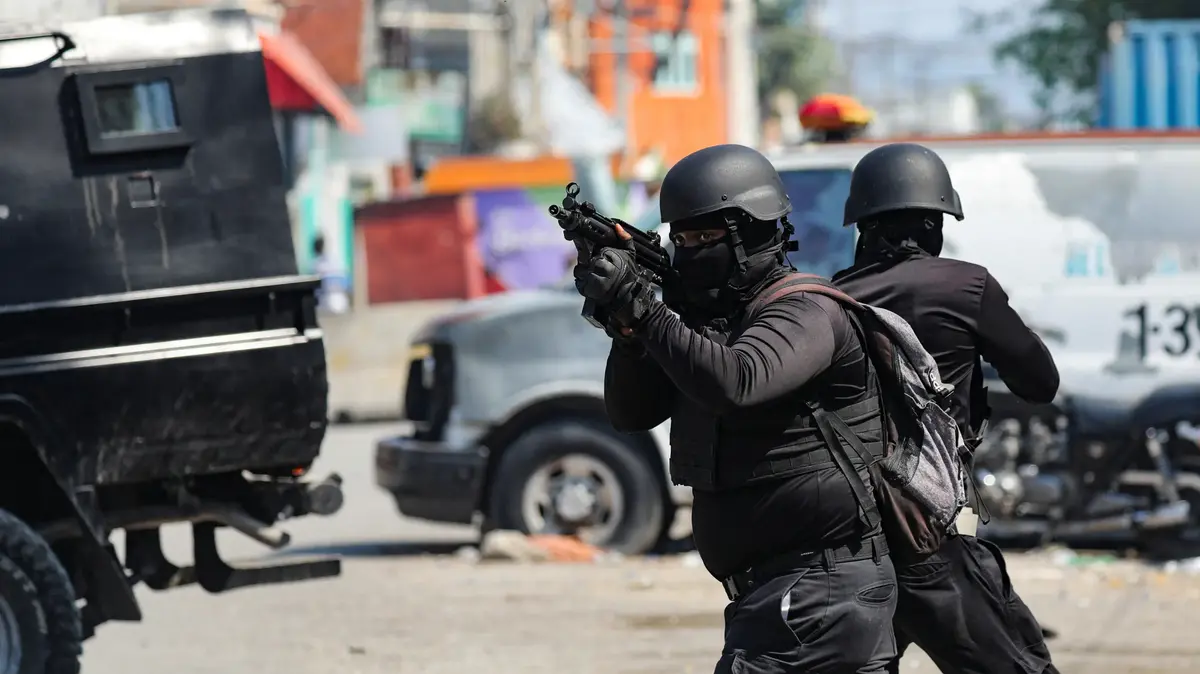Kidnappings in Haiti are big business for gangs 2:46
Port-au-Prince, Haiti (CNN) -
Danger was visible all around them, long before a group of missionaries and children from Christian Aid Ministries were kidnapped on the road in Haiti.
In a 2019 blog post, an anonymous member of the Ohio-based group described a harrowing escape by a group of men near the Port-au-Prince airport.
A man dressed in black yelling for money stopped the truck, the author wrote.
"In a matter of seconds, there were two, then three, and more and more. Countless large arms were coming through the two front windows. Someone pulled out a knife, but there were so many other arms in the way that he couldn't do more than a small scratch." .
"We tried to keep going, but they were jumping on the back of the truck, piling up on the awning and hanging all over the truck," they wrote, adding that there was a smell of alcohol in the air.
The driver “abruptly turned the truck and tried to accelerate again, but we hit a large rock that was not visible to all the people on the truck.” The men tried to cut off the truck's wheels, but were unsuccessful.
"I don't even know how we finally got out of there, but we escaped without being shot. I suppose some were content with the loot they got and withdrew to fight each other over it," they wrote.
A goat in the courtyard of the Maison La Providence de Dieu de Ganthier orphanage in Croix-des-Bouquets, Haiti, on Sunday, where a gang kidnapped 17 missionaries the day before.
More warning signs were to come.
In 2020, the group's base in Titanyen, a town north of Port-au-Prince, received threats from a local gang, according to another post on the same blog.
"The gangs that fight each other break the night calm with their bursts of gunfire. The CAM base in Haiti is targeted by the local gang demanding money and food, vandalizing CAM vehicles and threatening to do worse. ", it read.
advertising
That same year, the group's annual report said it had been forced to withdraw US personnel from Haiti for nine months due to political unrest, before allowing their return.
On Saturday, the situation worsened.
Seventeen members of Christian Aid Ministries, a group ranging in age from 8 months to 48 years, were abducted by the 400 Mawozo gang after visiting an orphanage in Croix-des-Bouquets, a northeast suburb of the capital, Port-au-Prince.
Members of one family, who were with a young child when they were taken hostage, had just arrived in Haiti earlier this month.
They have been held captive for four days.
FBI investigates kidnapping of missionaries in Haiti 3:08
The missionaries' captors are demanding a million dollars per hostage, which amounts to a total of US $ 17 million, and for the moment they remain firm in their demands.
"The kidnappers have been warned not to injure the hostages and the consequences they could have [if that happens]. But they are not persuaded by those warnings," said Haitian Justice Minister Liszt Quitel.
The 400 Mawozo group, which numbers up to 150 members according to a Haitian security source, is known for its group abductions and largely controls Croix-des-Bouquets.
In the same area, in April, five priests and two nuns, including two French citizens, were kidnapped and later released in exchange for ransom.
The 81-year-old nun, Sister Agnes Bordeau, told CNN that armed men seized control of her bus and drove it into a forest.
There, the group spent the first five days of their captivity, sleeping on pieces of cardboard with only a sheet to protect themselves from the chill of the night air.
Their meals, he says, consisted of some rice and some meat that the missionaries shared with the guards.
"It created a certain trust between us," says Bordeau.
"They told us about their lives. They were young people who had just gotten out of jail and who couldn't find another job other than to take up arms and become hostage guards. They didn't even know the leaders of the gangs they worked for. They were one of them. kind of hostages too, "he said.
The group was later transferred to different small and squalid shelters.
They were released after 20 days.
Bordeau did not want to comment on whether the French state had paid a ransom or not, only that his captors had demanded a million dollars in ransom.
Now she lives in a convent near La Rochelle, on the western Atlantic coast of France, and says about the latest kidnapping that she feels "a wave of sadness for the Haitian people, that all they want is to be able to get out of all this and they cannot ".
Global attention to an epidemic in Haiti
Hundreds of kidnappings have been reported in Haiti since the beginning of the year, but this latest incident involving American and Canadian missionaries has catapulted the country's security crisis to global attention.
Gangs control more than 60% of the Port-au-Prince metropolitan area, Pierre Esperance, executive director of the Haitian National Human Rights Defense Network, declared in July, leaving more than 200,000 city dwellers without basic services. or transportation in gang-run areas without police presence.
And in a city of nearly a million people, almost everyone seems to have their own grim story to tell, with stories of kidnappings and attacks as frequent as the poverty and political instability that drive it.
Chrisner and Merline, a couple from Port-au-Prince, were kidnapped in January as they were leaving their local church.
Sitting in the car of their kidnappers, with hoods on their heads, they could only think of one thing: either you return home or you do not return at all.
During five days of insomnia, the couple waited in a small room where they were given food and water only once a day.
"We were just in the room waiting for the moment when they had to decide what to do with us," they said.
They were released after their church raised enough money to pay the ransom: 600,000 Haitian gourdes, about US $ 6,300, an unsurpassable amount for most Haitians.
Kidnappings sow fear in Haiti: they are big business for gangs
Since January, there have been at least 645 kidnappings, in which foreigners have rarely participated.
Of the total this year, 42 kidnappings were of foreigners, and 4 of foreign residents, according to the Center for Analysis and Research for Human Rights (CARDH), a non-profit organization in Port-au-Prince.
Data from global risk consultancy Control Risks revealed that reported kidnapping cases increased 550% in the first nine months of 2021 compared to the same period last year.
Port-au-Prince resident Jean Gardy Jean told CNN that this week's coverage of the kidnapping of American missionaries speaks to how the world values the lives of Haitians.
"The kidnappings here have happened for so long, why didn't anyone talk about it then? Why does the world give so much importance to foreigners? It is because they are more important," he said.
"Gangs have become more influential actors"
The deterioration of Haiti's economic prospects, compounded by the assassination of President Jovenel Moïse in July, has accelerated the country's security crisis.
More than 15,000 people fled their homes in the capital this summer due to gang violence and arson.
Life in Port-au-Prince is marred by skyrocketing inflation, frequent blackouts, and food and fuel shortages, largely due to gang activity, which have blocked major distribution routes.
"The train derailed in Haiti": Prime Minister talks to CNN about the crisis and the deportees from the United States
"Gangs have become more influential players, putting pressure on the interim government," said Alan Zamayoa, Control Risks analyst for the Americas, noting that in recent months, humanitarian aid was able to circulate through Martissant, a neighborhood of the capital plagued by gangs, as a result of a truce between them.
On Sunday, gang activity was exposed as Prime Minister Ariel Henry was forced to abandon his plans to lay a wreath for the leader of the Haitian Revolution, Jean-Jacques Dessalines - a national holiday that commemorates his death - during a memorial service in Pont Rouge, an area controlled by a coalition of gangs known as the G9.
Zamayoa says there are many factors at play.
While "the security forces are overwhelmed and understaffed," he said that in recent years criminals also "have had access to more lethal weapons, such as semi-automatic rifles, which are much more powerful than police equipment. ".
Zamayoa explained that, in addition to these factors, "complicity with police officers and politicians, as well as impunity, are extremely high."
All this contributes to the gangs being able to "exercise territorial control" over areas of the capital, added Nicola White, director of Control Risk.
"They can hold multiple victims at the same time because they are not under sustained and credible pressure to conclude cases quickly or discreetly," White said, adding that these factors "have allowed for a significant increase in kidnappings."
But Haitians are fed up.
Just before the kidnapping of the missionaries, a Haitian transport union called an indefinite strike, which began on Monday, in protest at the increase in kidnappings, among other issues.
Melissa Bell contributed reporting. Caitlin Hu contributed reporting from New York.
Haiti Kidnapping

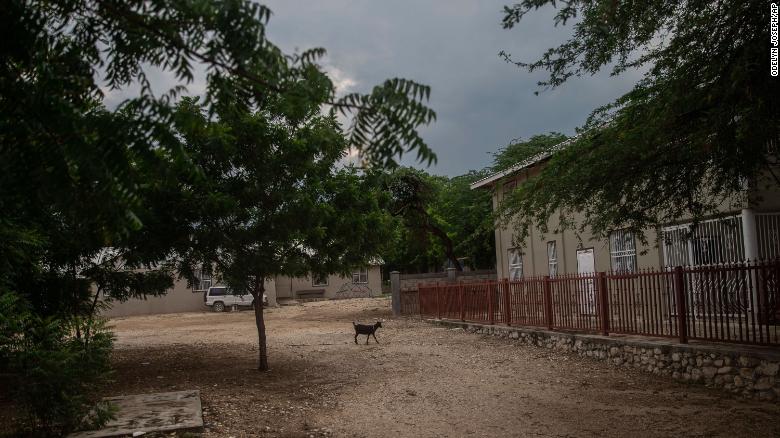

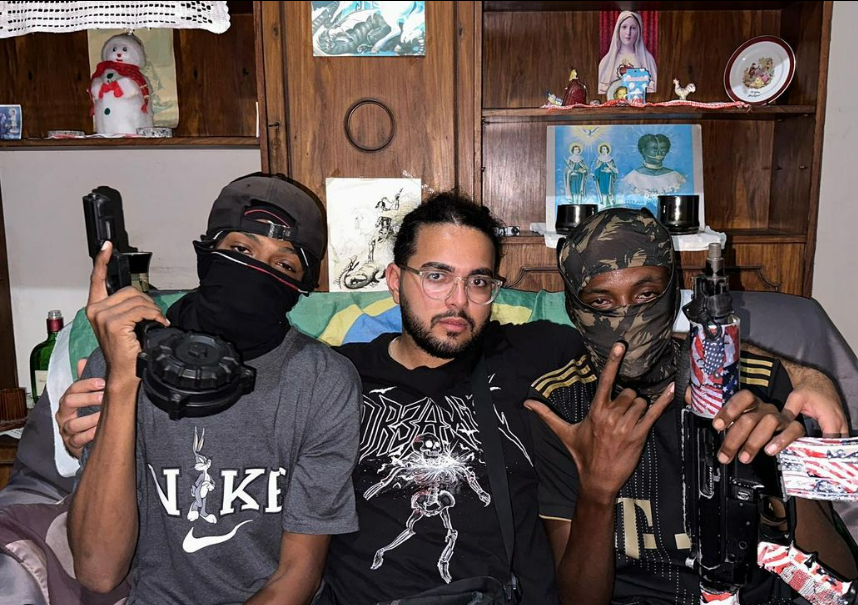
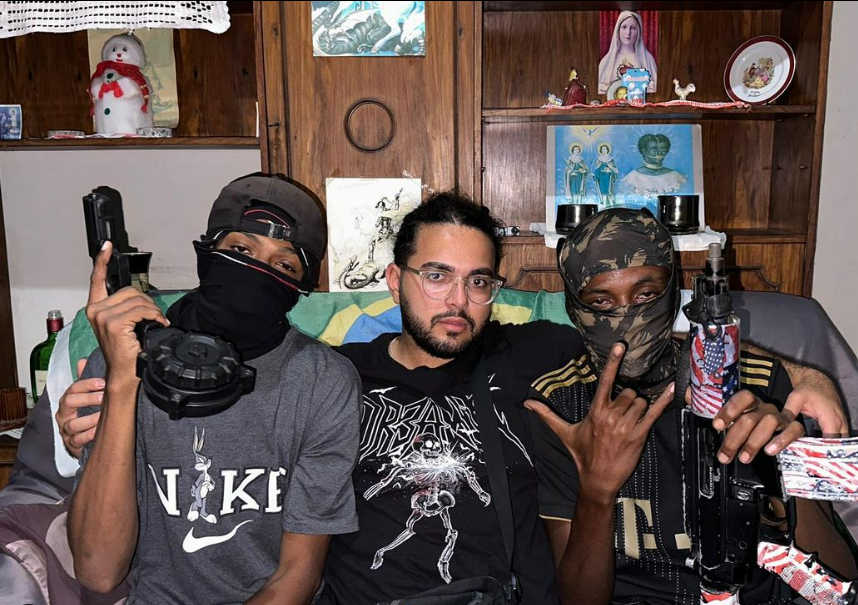
/cloudfront-eu-central-1.images.arcpublishing.com/prisa/7IHS2NB4DJFSVKYXCEUM5DIQGU.jpg)
